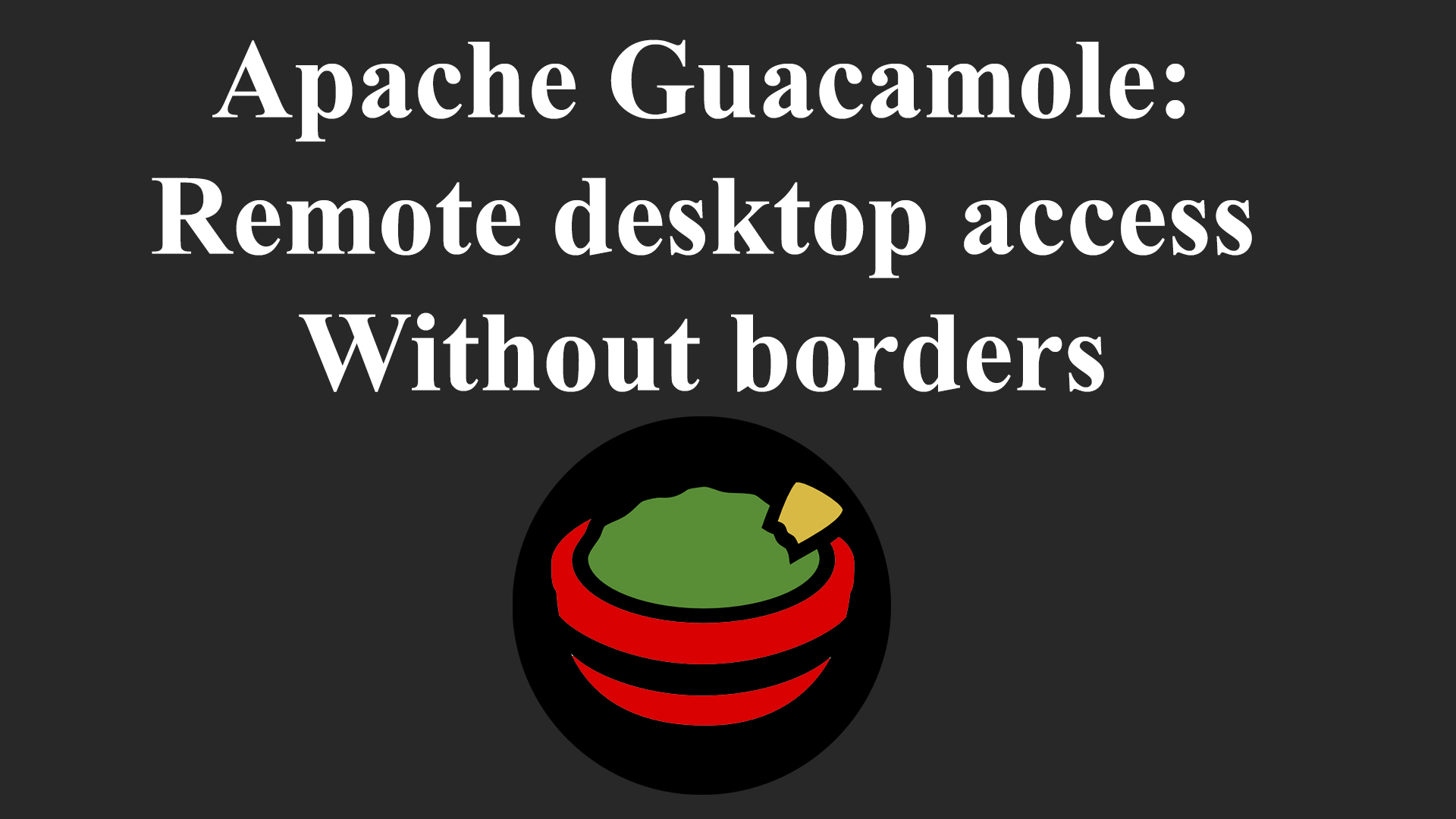Apache Guacamole: Remote desktop access without borders

Introduction:
Apache Guacamole is a remote access client platform that allows users to access their desktops and applications through a web browser. This powerful tool provides convenience and flexibility of remote access and is widely used in business. In this article, we will look at Apache Guacamole in more detail, tell you about its capabilities and role in the business environment, as well as analyze the advantages and disadvantages of this platform.
Description and principle of operation:
Apache Guacamole is a client-server application that allows users to access their remote desktops through a web browser. It works on the basis of VNC, RDP and SSH protocols, which provides support for a wide range of operating systems and devices. The Guacamole server part is installed on a central server to which remote desktops and applications are connected, and the client part runs in the user's browser.
Why is it needed:
Apache Guacamole solves the problem of remote access to desktops and applications from different devices and locations. It provides mobility and flexibility of work, allowing users to easily access their work resources from any device with Internet access. This is especially important for companies with remote or global teams, as it allows employees to work effectively outside the office, increasing productivity and improving communication.
Advantages of Apache Guacamole:
- Ease of use: Guacamole does not require the installation of client software, just a web browser is enough. This simplifies the setup process and reduces maintenance costs.
- Security: Apache Guacamole provides a high level of security, since users access remote desktops through a web browser, and data is not stored on the client side.
- Flexibility and scalability: Guacamole supports various remote access protocols, which allows you to work with different operating systems and devices. It can also integrate with existing management and authorization systems, providing ease of use.
- Monitoring and Analytics: Guacamole provides the ability to monitor and analyze remote access, which helps businesses monitor user activity and ensure information security.
Disadvantages of Apache Guacamole:
- Dependence on the quality of the Internet connection: The quality of remote access may depend on the speed and stability of the Internet connection. In case of a bad connection, delays or loss of quality of work are possible.
- Limited customization options: Apache Guacamole has a basic set of functions and tools for remote access, so there may be limitations in customization and individual adaptation.
Where it is used:
Apache Guacamole finds application in various business areas, including:
- Remote management of servers and infrastructure
- Support for users and IT departments
- Desktop Virtualization
- Distributed teams and remote work
Conclusion:
Apache Guacamole is a powerful tool for remote access, providing convenience, flexibility and security when working with remote desktops and applications. Its ease of use, support for various protocols, and integration capability make it an attractive choice for a business environment. However, it is important to take into account the dependence on the quality of the Internet connection and the limited configuration options. Apache Guacamole is great for companies that need remote access and management, increasing productivity and flexibility.

